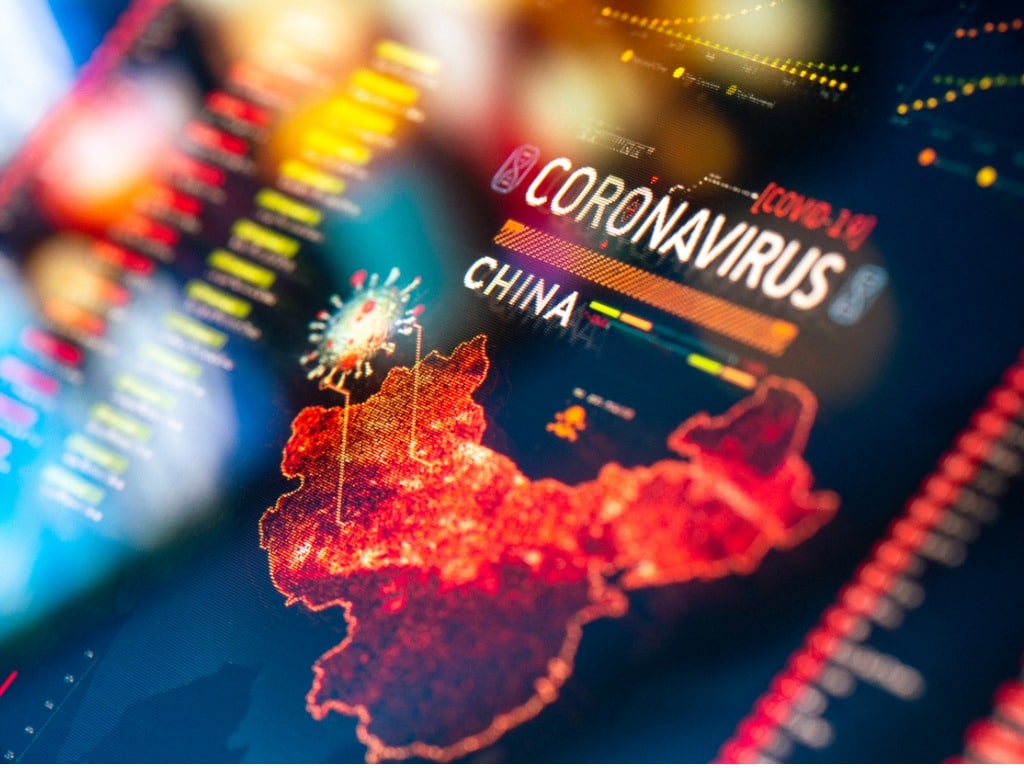Chinese citizens are remembering COVID-19 whistleblower Dr. Li Wenliang on the one-year anniversary of his passing, according to a February 7 article from NPR. Tributes to Dr. Li have poured in via Chinese social media, not only on the anniversary of his passing but on other days, too. Messages left on his Weibo page range from mourning his death to updates on their lives and feelings about life during COVID-19.
Dr. Li worked as an ophthalmologist at Wuhan Central Hospital and became one of the first whistleblowers in China to sound the alarm about the coronavirus. On December 30, 2019, Dr. Li “wrote a post to a closed group of medical school classmates on the WeChat social media site” that warned coworkers of “seven cases of severe acute respiratory syndrome (Sars),” according to a February 2020 article from the South China Morning Post (SCMP). His message urged his coworkers to “be on the alert” but keep the news inconspicuous.
However, “a screenshot of his post was leaked and circulated online on December 31,” according to the article. Local authorities later brought Dr. Li in to sign a letter. The letter accused him of making comments that “were not factual and broke the law” and stated that his behavior “severely disturbed public order,” the SCMP reports.
Dr. Li was admitted to the hospital with a suspected case of the new coronavirus on January 10, 2020, according to the SCMP. On January 31, Li “said he was in an intensive care unit and had difficulty breathing.” He was “officially confirmed to be infected with the new coronavirus on February 1.” Wuhan Central Hospital announced Dr. Li’s passing in the early hours of Friday, February 7, 2020, according to the article. He left behind his wife, who was five months pregnant at the time. She gave birth to their son in June of 2020 and posted a moving tribute to her late husband. “Can you see it from heaven? The last gift you gave me was born today. I will definitely take good care of them,” Dr. Li’s wife wrote on WeChat, according to a CNN article.
Chinese citizens expressed strong reactions to Dr. Li’s death via social media — to the extent that commentary was allowed. According to a February 2020 BBC article, hashtags demanding an apology to Dr. Li and anger regarding freedom of speech were trending on Weibo the day of Dr. Li’s death. However, the article states that the hashtags were later censored, along with “hundreds of thousands of comments” on the site.
Now, a full year after Dr. Li lost his life, Weibo users are still writing messages to him. “Hey Dr. Li, I just got a second COVID shot. It hurt a little. I miss you,” reads one message, according to NPR. “I’m so afraid that I’ll forget you, Dr. Li,” grieves another comment. Other messages populate Dr. Li’s Weibo page with everyday miscellany: “Will I pass my graduate exams tomorrow, Dr. Li?” “Dr. Li, I pet a cute orange cat today! I’m happy!”
However, some messages on Dr. Li’s social media page have darker tones: “Society is changing so quickly…I’ll stay true to myself. You and I, we are the same people, getting by every day but with our conscience intact,” wrote one user. The article states that “a shocking number of posts express a desire to self-harm.”
“Your social media page is like a tree hollow where every moment, people hide their innermost thoughts,” another user posted. Huang Zhisheng, a professor and artificial intelligence researcher at the Free University Amsterdam, provided insight into this comparison, which is based on a Chinese tradition. “You find a tree hollow in the forest and seal your written secret in there so you can feel better,” Huang told NPR. “Now despairing young people are turning to social media, finding profiles of those already deceased to quietly tell them of their emotional suffering.”
Huang also has a direct connection to the commenters on Dr. Li’s page. He “built an AI algorithm that scans Chinese social media, including the 1 million or so posts written to Li, and identifies those who need immediate help. A team of volunteers in China then reaches out to about 100 people a day this way,” the article states. During the pandemic, Huang and his team “saw a 40% surge in urgent cases compared to 2018 and 2019.” Mental health during the pandemic has been studied by the U.S. Centers for Disease Control and Prevention and covered by official organizations like the World Health Organization and the U.S. Department of Health and Human Services.
Dr. Li had an incredible impact as a whistleblower who warned coworkers about the emerging coronavirus at the highest personal cost. However, he continues to serve as a symbol of hope, loss, and refuge for many citizens turning to social media for expression, even though he became a victim of the disease he sought to protect others from.
